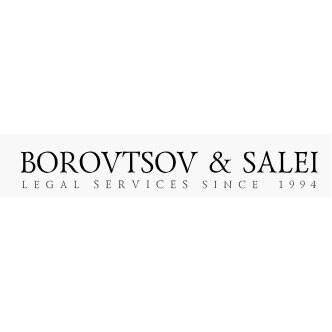Best International Trade Law Lawyers in Belarus'
Share your needs with us, get contacted by law firms.
Free. Takes 2 min.
List of the best lawyers in Belarus', Belarus
About International Trade Law in Belarus
International Trade Law in Belarus encompasses a wide range of legal regulations governing trade and commerce between Belarus and other countries. This body of law deals with various topics, including import and export regulations, tariffs, trade agreements, dispute resolution, and customs regulations. As Belarus continues to participate in global markets, complying with international trade laws and maintaining awareness of changes in international agreements or treaties is crucial for businesses involved in cross-border trade.
Why You May Need a Lawyer
There are several scenarios wherein having a lawyer specializing in International Trade Law can be beneficial:
- Understanding complex import/export regulations and compliance requirements.
- Negotiating and drafting international trade agreements.
- Resolving cross-border trade disputes or litigations.
- Advising on tariff changes and their impact on business operations.
- Assisting with customs audits and investigations.
- Navigating sanctions or trade restrictions imposed by regulatory authorities.
- Ensuring intellectual property rights are protected in international transactions.
Local Laws Overview
Belarus has its own specific set of trade regulations that align with international standards. Some key aspects include:
- Customs Code of the Republic of Belarus: Governs all customs-related activities for import and export.
- Trade agreements: Belarus is a member of the Eurasian Economic Union (EAEU), which affects trade policies and agreements.
- Taxation: Specific tax laws apply to cross-border trading activities, including VAT regulations on imports.
- Product Standards: Compliance with local and regional product safety and quality standards is mandatory.
- Currency Regulations: Outlines the framework for foreign currency transactions related to trade.
Frequently Asked Questions
What is the importance of international trade law for businesses in Belarus?
International trade law helps businesses protect their interests, comply with regulations, minimize risks, and resolve disputes efficiently when engaging in cross-border trade.
What documentation is required for importing goods into Belarus?
Key documents include import declarations, invoices, certificates of origin, and product compliance certificates, among others, to meet customs regulations.
How do trade sanctions impact international trade in Belarus?
Sanctions can restrict certain trade activities, limit access to markets, and impose additional compliance requirements on businesses engaging with sanctioned entities.
Are there any specific tariffs for goods imported from non-EAEU countries?
Yes, tariffs vary based on the product classification, and preferential tariffs may apply if there are applicable international agreements.
How can businesses handle trade disputes?
Trade disputes can be resolved through negotiation, mediation, arbitration, or litigation, depending on the nature of the dispute and the existing agreements between parties.
What are Belarus's main trading partners?
Belarus's primary trading partners include Russia, the European Union, China, and other EAEU member countries.
How does the education and certification process for international trade specialists work?
Specialists typically need relevant educational qualifications and certifications in international trade to ensure they understand and can navigate complex trade laws.
Can businesses get exemptions from certain trade regulations?
Exemptions may be available under specific circumstances, often requiring thorough documentation and approval from relevant authorities.
What role do international trade organizations play in Belarus?
These organizations support businesses by providing resources, advocacy, networking opportunities, and ensuring fair trade practices are maintained.
How can businesses keep up with changes in international trade law?
Staying informed through legal updates, consulting with specialists, and engaging with trade associations are key strategies for keeping up-to-date.
Additional Resources
For further assistance, the following resources can be useful:
- Ministry of Foreign Affairs of the Republic of Belarus: Provides information on international agreements and trade policy.
- State Customs Committee of Belarus: Offers guidelines and detailed information on customs regulations.
- Belarusian Chamber of Commerce and Industry: Provides resources and support for businesses involved in foreign trade.
- The Eurasian Economic Commission: Offers information on trade policies within the EAEU.
- World Trade Organization (WTO): Useful for understanding international trade standards affecting Belarus.
Next Steps
If you need legal assistance in International Trade Law in Belarus, consider taking the following steps:
- Consult with a lawyer specializing in international trade to assess your needs and explore legal options.
- Gather all necessary documentation and details regarding your specific trade issues or interests.
- Reach out to relevant local and international trade organizations for support and advice.
- Consider attending educational seminars or workshops on international trade to enhance your understanding and connections.
- Regularly review and stay informed about changes in trade laws and international agreements affecting your business.
Lawzana helps you find the best lawyers and law firms in Belarus' through a curated and pre-screened list of qualified legal professionals. Our platform offers rankings and detailed profiles of attorneys and law firms, allowing you to compare based on practice areas, including International Trade Law, experience, and client feedback.
Each profile includes a description of the firm's areas of practice, client reviews, team members and partners, year of establishment, spoken languages, office locations, contact information, social media presence, and any published articles or resources. Most firms on our platform speak English and are experienced in both local and international legal matters.
Get a quote from top-rated law firms in Belarus', Belarus — quickly, securely, and without unnecessary hassle.
Disclaimer:
The information provided on this page is for general informational purposes only and does not constitute legal advice. While we strive to ensure the accuracy and relevance of the content, legal information may change over time, and interpretations of the law can vary. You should always consult with a qualified legal professional for advice specific to your situation.
We disclaim all liability for actions taken or not taken based on the content of this page. If you believe any information is incorrect or outdated, please contact us, and we will review and update it where appropriate.








